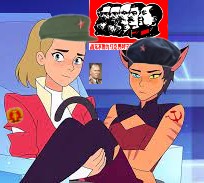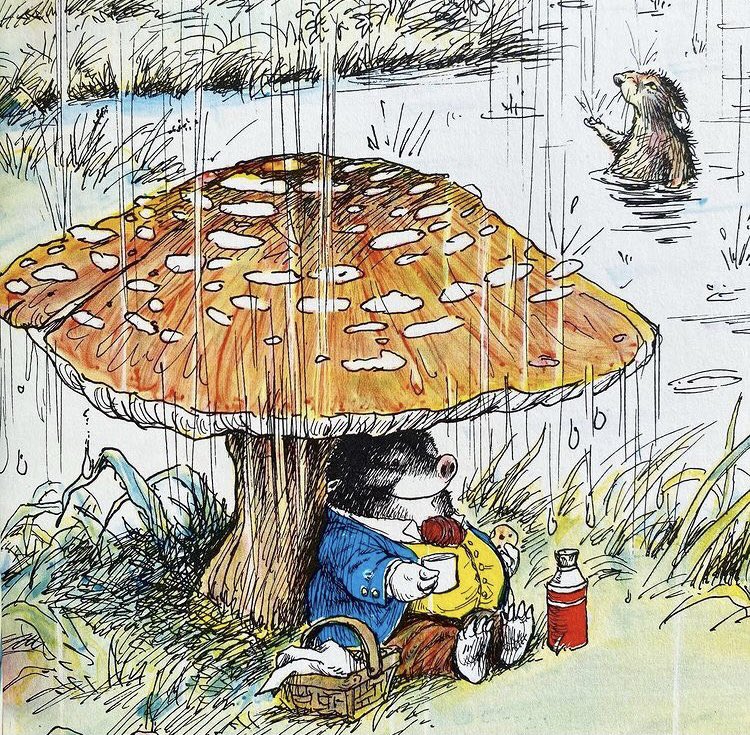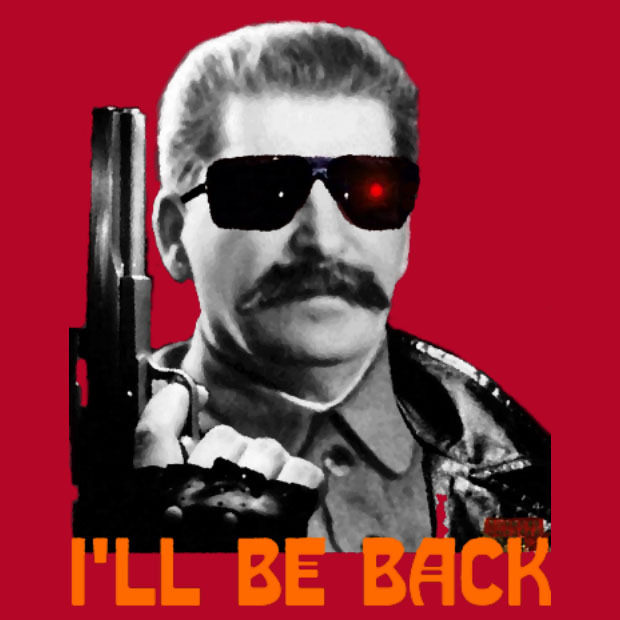I have to deal with liberals asking about this and i gotta say i don’t know enough to be sure about my answer
The only correct solution is regional autonomy, autonomy for such crystallized units as Poland, Lithuania, the Ukraine, the Caucasus, etc. The advantage of regional autonomy consists, first of all, in the fact that it does not deal with a fiction bereft of territory, but with a definite population inhabiting a definite territory. Next, it does not divide people according to nations, it does not strengthen national barriers; on the contrary, it breaks down these barriers and unites the population in such a manner as to open the way for division of a different kind, division according to classes. Finally; it makes it possible to utilize the natural wealth of the region and to develop its productive forces in the best possible way without awaiting the decisions of a common centre – functions which are not inherent features of cultural-national autonomy. Thus, regional autonomy is an essential element in the solution of the national question. Of course, not one of the regions constitutes a compact, homogeneous nation, for each is interspersed with national minorities. Such are the Jews in Poland, the Letts in Lithuania, the Russians in the Caucasus, the Poles in the Ukraine, and so on. It may be feared, therefore, that the minorities will be oppressed by the national majorities. But there will be grounds for fear only if the old order continues to prevail in the country. Give the country complete democracy and all grounds for fear will vanish. It is proposed to bind the dispersed minorities into a single national union. But what the minorities want is not an artificial union, but real rights in the localities they inhabit. What can such a union give them without complete democratization? On the other hand, what need is there for a national union when there is complete democratization?
What is it that particularly agitates a national minority?
A minority is discontented not because there is no national union but because it does not enjoy the right to use its native language. Permit it to use its native language and the discontent will pass of itself.
A minority is discontented not because there is no artificial union but because it does not possess its own schools. Give it its own schools and all grounds for discontent will disappear.
A minority is discontented not because there is no national union, but because it does not enjoy liberty of conscience (religious liberty), liberty of movement, etc. Give it these liberties and it will cease to be discontented.
Thus, equal rights of nations in all forms (language, schools, etc.) is an essential element in the solution of the national question. Consequently, a state law based on complete democratization of the country is required, prohibiting all national privileges without exception and every kind of disability or restriction on the rights of national minorities.
These come from “Marxism and the National Question” by Stalin. These were the postures on the russian national questions, i am just taking a short section without context but the entire essay is about protecting and promoting the culture of the people of their respective regions.
Just got to be prepared for when the libs shrug it off as hypocrisy without any evidence whatsoever that Stalin said this while actively doing the opposite. Wouldn’t even be surprised if some Soviet policies had, at the least, the unintended consequence of damaging a minority language(s); but I’d know it as an assumption and be happier to be proven wrong, whereas the libs will undoubtedly make a more outrageous claim, without support, expecting agreement.
The notion that Stalin and other revolutionaries wrote all these revolutionary theory just to look good is so infantile lol.
All these historical figures left us a ton of evidence of their thoughts by their writings and letters, we don’t need some western historian to tell us who they were.
They’re dictators with complete authority you can’t even dare to question, but they simutaneously had to explain the rationale of what they believed and did, publicly…
Liberals purposelly avoid talking about historical figures writings because their leaders constantly wrote the most evil shit possibly imagined lmao.
I doubt you’re gonna convince libs, since most sources like All-Ukrainian Central Executive Committee 01.08.1923 decree are probably not translated and sources citing them were written in USSR and RF, which makes them instantly invalid to libs to begin with (oBvIoUsLy “written but not followed” about the decrees and “propaganda” for the books), but this seems to be an ok overview just for general knowledge.
No, Ukrainianization was promoted in all of Ukraine and the Kuban region of Russia as well. In 1930, this was repealed by local goverments in Novorossiya, Ukrainian language wasn’t banned but not promoted like it was in previous years.
https://nemets.substack.com/p/roots-of-the-donbass-war
In spite of the absorption of the Borotbists and Ukapists, the Ukrainian Bolsheviks were still a largely foreign party in 1922, with 77% of members being non-Ukrainian. Recognizing their weak roots in the Ukrainian countryside, the Bolsheviks launched a Ukrainianization drive in 1923. The school system was shifted to Ukrainian, Ukrainian use was expanded in the universities, bureaucrats were required to take Ukrainian lessons, Ukrainian newspapers were founded, Ukrainian language signs were made, and Ukrainians were promoted in the party apparatus. Not only was the aim to strengthen communism within Ukraine, but also to attract the support of millions of Ukrainians living under Polish rule in Galicia. World Revolution after all could not be stopped by mere borders.
While Ukrainization was advocated by the Soviet government, there was widespread passive opposition to Ukrainization policies in the Russian majority cities of the east. The Russian language continued to dominate within urban industry, and Ukrainian speakers rapidly adopted the Russian language upon moving to the eastern cities. Fewer than 10% of workers in the Donbass in the 1930s knew Ukrainian, and it was a minority language among workers in Kiev and Kharkov. Ukrainians and Russians largely saw each other as part of the same ethnic majority and mixed with little problem. Some 6.5 million Ukrainians lived in Soviet Russia in 1925, and their descendants today are fully assimilated Russians.
Ukrainianization funding was cut in 1928, allowing for institutions to ignore Ukrainianization measures. Odessa, Nikolayev, and Kharkov all moved to reverse parts of Ukrainization measures. However it was the failure of collectivization and the resulting famine in 1932 that turned the Soviets decisively against Ukrainization. Polish spies and Ukrainian nationalists were blamed. The theory was that former members of the Ukrainian People’s Republic (an anti-Bolshevik state based out of Kiev that had been defeated in 1921) as well as Polish agents had successfully infiltrated the communist apparatus through the Ukrainianization process, then sabotaged Soviet agriculture. 16,000 were arrested in this prelude to the Great Terror.
Ukrainianization policies and supporters were further undermined by public Nazi support for an independent Ukraine in 1933. By 1934, Stalin decided that both Great Russian chauvinism and local nationalisms (such as that of Ukraine) should be dealt with on a case-by-case basis, thus removing the last basis for Soviet support for Ukrainianization. Russification was revived outside of primary schools. While a greater share of Ukrainian students studied Ukrainian in primary school in the late 1930s and after than they did during the 1920s at the height of the Ukrainianization movement, Russian supplanted it elsewhere.
Poland had seized the whole of Galicia and half of Volhynia in the chaos following WWI. Naturally favoring its own people over the Ukrainians, Poland gave its army veterans land in the east while also encouraging Ukrainian emigration. The Ukrainian language was excluded from public use, the ethnic label of Ukrainian was never used (Rusyn was used instead), and tribal distinctions were encouraged. Lemkos, Boykos, and Hutsuls as well as Old Ruthenians were encouraged to identify themselves as separate from Ukrainians.
Ukrainian resistance against Polish rule was less common but better known than Ukrainian resistance against Soviet rule. This is partly due to the mercilessness of Soviet reprisals, but also the charisma of Stepan Bandera. Leader of the Organization of Ukrainian Nationalists (OUN), Bandera organized assassinations of Polish and Soviet officials in the 1930s in revenge for the injustices committed against Ukrainians. Sentenced to seven life terms in Polish prison, Bandera escaped in September 1939 during the collapse of the Polish state.
Soviet troops occupied the eastern parts of Poland in 1939 per an agreement with Germany. Galicia fell under Russian rule for the first time in history. The Soviets sought to win local Ukrainian support by Ukrainianizing the school system and abolishing Polish cultural institutions. Additionally, they shifted the ethnic balance of the region in the favor of Ukrainians by deporting over 400,000 Poles.
The Second World War devastated Ukraine. Much of Ukraine’s infrastructure and housing was destroyed in the fighting, 4.1 million civilians died, and 1.4 million soldiers were killed. Much as in 1709, the vast majority of Ukrainians fought alongside Russians rather than the Westerners. Of those who did not fight alongside the Russians, about 250,000 fought for Germany and another 100,000 fought under the banner of the Ukrainian Insurgent Army. The latter, sometimes backed by Germany, sometimes not, killed between 60,000 and 90,000 Poles in Galicia and Volhynia, causing the surviving Poles to flee west.
Thus the Polish-Ukrainian conflict which had begun in 1340 had finally been resolved in WWII. While the centuries of violence have not been forgotten, they have been forgiven. The lack of an active dispute between Ukraine and Poland has led them to peace and mutual affection. The Ukrainian nationalists, no longer occupied with the Polish problem, thus turned their full attention to the Soviet and later Russian problem.
In Crimea, the local Tatars collaborated with the invading Germans at a rate unmatched elsewhere in the USSR. As many Crimean Tatars volunteered to fight for Germany as fought for the USSR. Widespread collaboration caused the Slavs (both Russian and Ukrainian) to loathe the Crimean Tatars as collaborators. The entire Tatar population was deported after the peninsula was liberated by Soviet forces, turning it into an almost purely Slavic land. Even though Crimea was 71% Russian, it was turned over from Russia to Ukraine in 1954 as a gift.
Many Ukrainian collaborators suffered the same fate as the Crimean Tatars. However, some managed to escape to the West. Ukrainian communities in Canada, America, Germany, Brazil, Australia, Venezuela, and Denmark worked to aid their coethnics and provided them safe havens - regardless of what they had done at home. They became unusually prominent in Canada, where they have been instrumental in promoting Ukrainian culture and history. For instance, Canada’s Deputy Prime Minister Chrystia Freedland’s grandfather worked closely with German propagandists during WWII. Those Ukrainian emigrant communities formed an education network which in the 1970s and 1980s created an ideological basis for an independent Ukrainian state that was largely alien to the Ukrainian historical research completed within the Soviet Union.
The 1950s saw the beginning of a lasting peace in Ukraine. There were trends towards Russification and Ukrainianization. About a quarter of students in Soviet Ukraine attended Russian language schools, but the Hrushyov Thaw allowed for a revival of Ukrainian culture and history. Economic decentralization allowed for regional party bosses to gain power, with a particularly powerful clique becoming influential in Dnepropetrovsk. The Brezhnev era saw a continuation of those contradictory trends. Ukrainians gained more control over the local political and economic structures, while at the same time the erasure of national distinctions was idealized - the aspiration was to birth a new Soviet nation from the old peoples.
While urbanization in the 1920s and 1930s had driven Russification, it instead drove a stronger Ukrainian identity in the 1970s and 1980s. Literacy and education accentuated previously fluid ethnic distinctions between Russians and Ukrainians. Gorbachyov’s openness policies in the 1980s drove another Ukrainian cultural revival, as well as allowing for research into the 1933 famine and Soviet massacres of Ukrainians. A Cossack revival took place in the west, and attempted to revive the Cossack heritage in the faithfully communist east.
Nope. The Ukrainian language was backed by the Ukrainian Soviet Socialist Republic.
Smaller cultures in the USSR had their own republics and were assisted by the central state in building language resources, especially in the early years but fell off in importance for many compounding reasons through and after WW2.
The USSR could have been a serious experiment in cultural revitalization after centuries of Colonial rule, this was cut short unfortunately.






